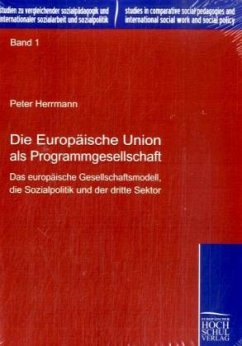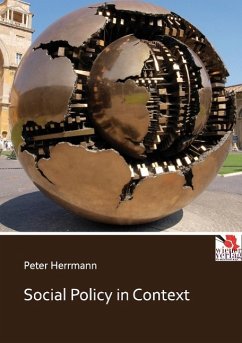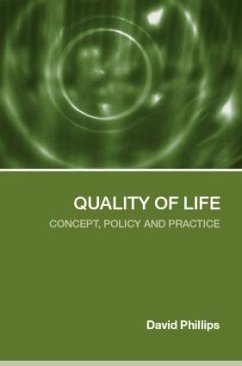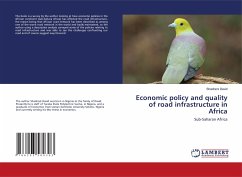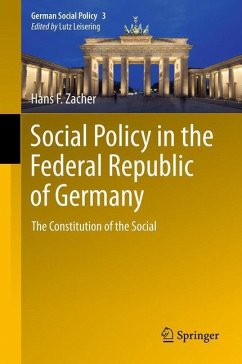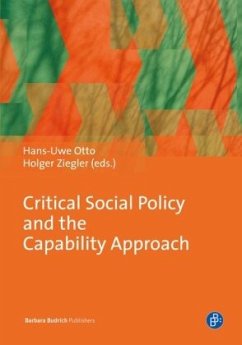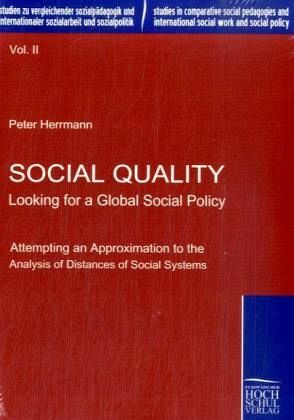
Social Quality - Looking for a Global Social Policy
Attempting an Approximation to the Analysis of Distances of Social Systems
Herausgeber: Chen, Ming Fang
Versandkostenfrei!
Versandfertig in 6-10 Tagen
90,00 €
inkl. MwSt.

PAYBACK Punkte
0 °P sammeln!
Global (social) policy, human rights discussions and the UN-strive for Human Development and Human Security are all caught in two fundamental traps: The one is that they take a specific model of existing developed countries i.e. advanced capitalism as sole ideal without seriously reflecting other advanced models. A possible alternative if imagined is at most proposed by romanticised imaginations of a good society, in many cases referring to some kind of innocent goodness of indigenous ways of life. The other trap is not far from the said alternatives a reference to abstract and isolated concep...
Global (social) policy, human rights discussions and the UN-strive for Human Development and Human Security are all caught in two fundamental traps: The one is that they take a specific model of existing developed countries i.e. advanced capitalism as sole ideal without seriously reflecting other advanced models. A possible alternative if imagined is at most proposed by romanticised imaginations of a good society, in many cases referring to some kind of innocent goodness of indigenous ways of life. The other trap is not far from the said alternatives a reference to abstract and isolated concepts of justice, freedom etc., referring to moral statements, however, isolating them from wider systematic socio-economic and politico-judicative thinking. The present volume attempts the difficult task of combining from a socio-philosophical perspective political economy and social law in order to develop an understanding of public responsibility for social quality in a global ambit. Specialfeatures of the volume are an introduction into the social quality approach, an excursus looking at Islam societies, and an excursus, looking at Asian understandings.






